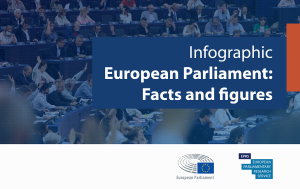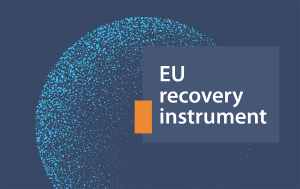Think Tank

Les documents qui contribuent à déterminer la nouvelle législation de l'Union
Child residential care reforms
According to international standards, children without parental care should grow up in a setting as close as possible to a family or in a small group. After serious concerns had been raised about residential care for children and youths, several EU countries started to transition from institutional to family-based care. In parallel, residential care in small units may still be seen as part of a continuum of services for children and youths with varying needs. In the EU, care for children and youths ...
Guidelines for trans-European energy infrastructure: Revision of the TEN-E Regulation
Timely, cost-efficient expansion and modernisation of the European energy infrastructure is one of the key challenges in the EU's ongoing energy transition. Grid development is needed to ensure energy supply security, increase the resilience of Europe's energy system and integrate the rapid roll-out of renewable energy sources. Cross border infrastructure plays a vital role in connecting national energy networks. Meeting the 2030 interconnection targets is particularly important for completing the ...
Acceleration of permit-granting procedures
Expansion and modernisation of the energy infrastructure in Member States is one of the key challenges of the ongoing energy transition in the EU. The electricity grids need to develop in order to ensure the security of energy supply, increase the resilience of Europe's energy system, and integrate the rapid roll-out of renewable energy sources, particularly at the distribution level. Given the peristent challenges relating to permit-granting procedures and delays in grid connection approvals at ...
Plenary round-up – January I 2026
The highlight of the first plenary session of 2026 was the celebration of the 40th anniversary of Spain and Portugal's accession to the European Union, marked with a formal sitting addressed by His Majesty Felipe VI, King of Spain, and His Excellency Marcelo Rebelo de Sousa, President of the Republic of Portugal. Members debated with the European Council and European Commission on the conclusions of the European Council meeting of 18 December 2025 and the geopolitical tensions currently facing Europe ...
Firearms Trafficking Directive
• The European Commission intends to make a proposal to harmonise the definitions, classifications and penalties of firearms offences to place further pressure on illegal markets. • Addressing the availability of illicit firearms has been an aim within the EU for some time. Denying firearms and explosives to terrorists and criminals enhances the safety and security of EU citizens. In the EU 2020-2025 action plan on trafficking in firearms, the Commission noted the challenges that existed in minimising ...
Evénements à venir

What implications for parliamentary oversight and transparency?

On Tuesday, 27 January 2026, from 15:00 to 16:30, the Subcommittee on Tax Matters (FISC) will organise a public hearing on “Tackling tax obstacles in the Single Market”. Experts will present their views and discuss with FISC Members how to address remaining tax-related obstacles and distortions in the Single Market.

On 27 January 2026, the Committee on Budgetary Control (CONT) will organise the public hearing “Protection of the financial interests of the EU in Slovakia”.
Infographies
Publications du Think Tank
Le contenu de tous les documents disponibles sur le site internet du Think Tank engage la seule responsabilité de l'auteur et les avis qui y sont exprimés ne reflètent pas nécessairement la position officielle du Parlement européen. Il est destiné aux députés et au personnel du Parlement européen dans le cadre de leurs activités parlementaires.








